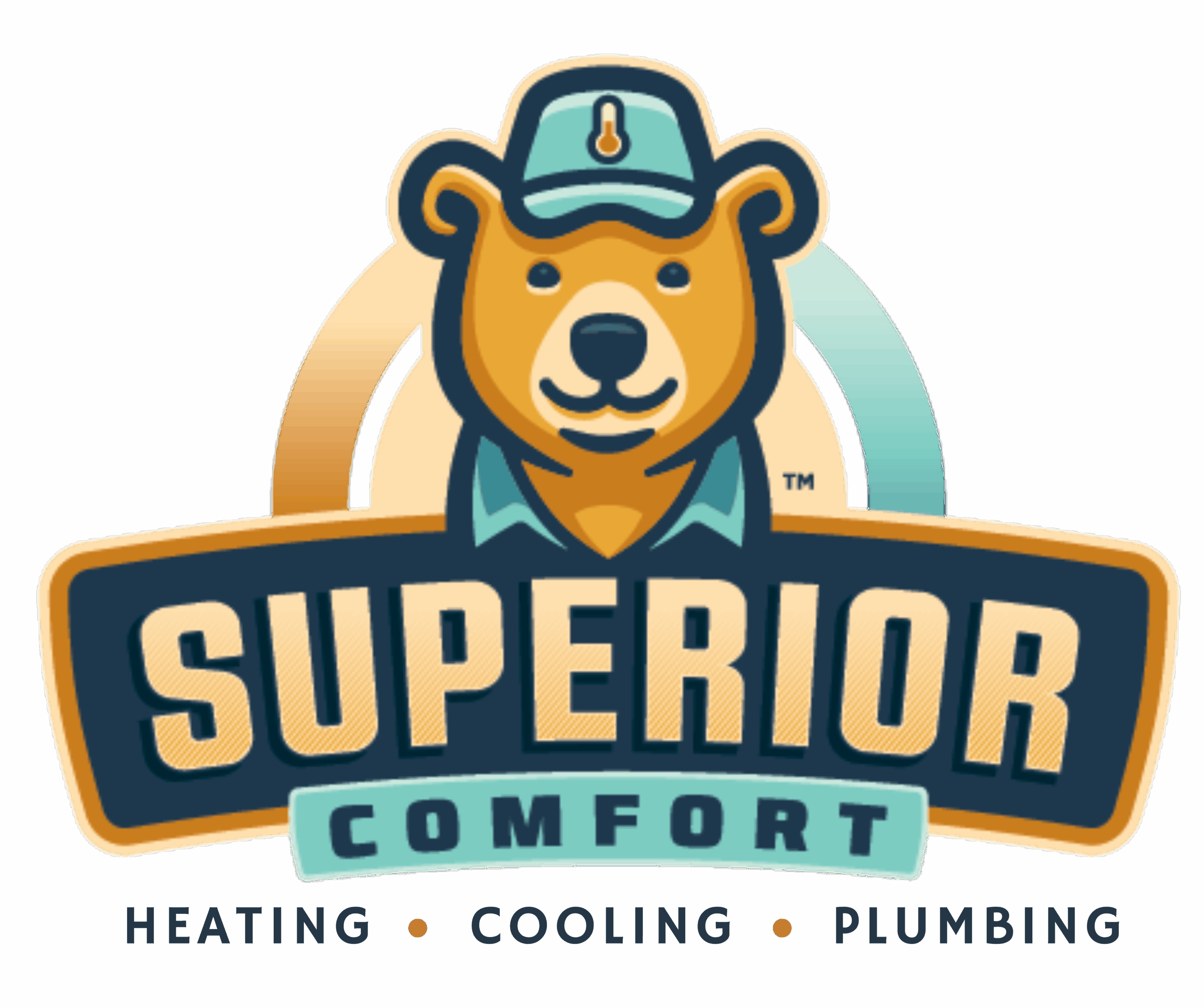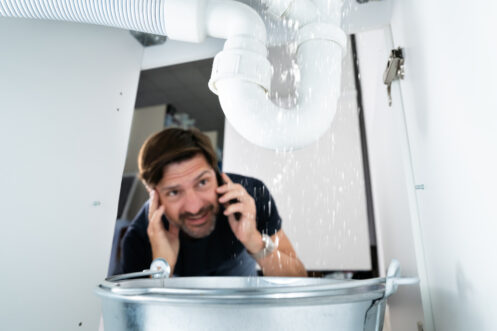The Upper Midwest has some of the coldest winter temperatures in the country. Windchills plummet below zero for much of the season. These frigid temperatures can wreak havoc on the plumbing in your home in Flat Rock, MI. Protect it by learning about the following common plumbing issues after a harsh Michigan winter.
Problem 1: Frozen Pipes
Subzero temperatures contribute to frozen pipes. The cold air surrounding the pipes in your plumbing system freezes the water inside them. You must then use a blow dryer or a space heater or wait for warmer weather to thaw them.
Solution
Keep your faucets on a slow drip to keep water moving through them. Likewise, insulate the pipes to prevent them from freezing. Use materials like:
- Foam pipe insulation
- Fiberglass pipe wraps
- Foil pipe wraps
- Rubber pipe insulation
Heat tape can also help keep your pipes warm. It doesn’t insulate but provides a constant source of low heat. It’s ideal to use in areas that experience frequent subzero temperatures.
Problem 2: Burst Pipes
Burst pipes pose another common challenge for Michigan homeowners. Frozen water expands, putting stress on the pipes. The increased pressure causes the pipes to burst, spraying water everywhere and damaging floors, ceilings, walls and furnishings.
Solution
In addition to insulating the pipes, seal gaps in walls, floors, and ceilings near them. Keep rooms like the kitchen and bathroom warm to prevent pipe freezing.
Disconnect and drain water out of outdoor hoses and faucets. Cover them with frost caps or faucet covers for the winter.
Problem 3: Low Water Pressure
Harsh Michigan winters put your home at risk of low water pressure. This problem occurs because of partially or completely frozen pipes.
Likewise, sediment in the pipes creates blockages that restrict your home’s water flow. Cold weather additionally affects plumbing systems’ pressure regulators, leading to inconsistent water pressure.
Solution
Service the pressure regulator in your plumbing system to keep it working normally. Similarly, clean faucet aerators to remove sediment and grime in them.
You should also keep your cabinet doors open in the bathroom and kitchen to move warm air around the pipes. Apply gentle heat to frozen pipes to thaw them.
Problem 4: Water Heater Malfunction
Increased demand for hot water during the winter contributes to water heater problems. You could run out of hot water faster than usual. Sediment also builds up in the tank, lowering your hot water supply and water pressure.
Solution
Flush your water heater at least once a year to remove sediment and prevent buildup in the tank. You should also check the thermostat settings to ensure it’s hot enough for your household’s hot water needs. Make an appointment with us to flush the tank and adjust the thermostat as needed.
Problem 5: Clogged Drains
Homeowners routinely deal with clogged drains after a harsh Michigan winter. The frigid weather makes it more challenging for some people to dispose of debris like grease and food in trash bins and garbage dumpsters. Instead, they may try to flush it down their toilets or pipes, where the residue accumulates and creates large clogs.
Solution
Avoid rinsing grease down your drains. Place it in a coffee can or other safe container. Throw food away in your regular trash bin or use your garbage disposal. Do not use drain-cleaning chemicals sold at grocery and hardware stores.
Problem 6: Leaky Faucets
As winter weather thaws, you may find yourself dealing with leaky faucets. Some of the common causes of leaky faucets include:
- Worn-out washers
- Damaged O-rings
- Corroded valve seats
- Loose or worn-out seals
- High water pressure
Cold weather can also cause thermal contraction that loosens connections and causes faucet leaks.
Solution
Replace or repair faucets that leak. This project requires turning off the water supply, plugging the drain, and then disassembling and replacing damaged parts. It also helps to test the faucet after you reassemble it.
Problem 7: Sump Pump Failure
A particularly long and harsh winter puts your sump pump at risk of failure. Subzero temperatures freeze discharge pipes. Cold weather may also crack and break your sump pump’s PVC pipes and strain its motor. Moisture buildup causes components in the pump to freeze and seize, making it less effective or preventing it from working.
Solution
Keep your sump pump working after a harsh winter in Flat Rock by insulating its discharge line. Install a frost-free vent or outlet to ensure water exits at a downward angle far from your house.
Keep the pump active by occasionally pouring warm water into the pit. Check it routinely for ice blockages, and keep the area where you store it warm.
Problem 8: Frozen Septic System
Frigid winter weather could leave you dealing with a frozen septic system. Contributing factors to this issue include:
- Lack of insulation
- Low water use
- Small drips and leaks
- Poor maintenance
Compacted soil and heavy snow can also cause frost to go deeper into the ground and freeze your septic system.
Solution
Professionally maintain your septic system at least once a year and repair any leaks and drips. Insulate the tank with a layer of straw or mulch during the winter to keep it warm.
Use the system regularly to keep water flowing through it. Do not park vehicles or heavy equipment around it to prevent compacted soil.
Problem 9: Noisy Pipes
Your pipes could make unusual noises after a harsh winter. Freezing water expands, putting pressure on your home’s pipes and causing noises like cracking and creaking. Likewise, thermal contracting leads to banging and clunking noises.
Solution
Insulate pipes to prevent them from freezing. Drain and shut off outside faucets and drip your inside faucets to keep water moving through them. If you have a radiator system in your home, bleed the radiators to release trapped air. Use pipe clamps and brackets to keep loose pipes in place.
Problem 10: Damaged Toilet
Frigid temperatures put your toilet at risk of damage. Yours could have a cracked bowl or tank because of frozen water expanding and damaging the porcelain. Extreme cold also freezes sewage lines, causing sewage to back up inside your home’s toilet.
Solution
Prevent toilet damage by insulating its pipes. Wrap them with insulated tape and keep the bathroom warm to stop water from freezing inside the toilet’s pipes. Likewise, keep the bathroom door open as much as possible to help warm air circulate around the toilet.
Use antifreeze in the bowl if you plan on being away from home for several days or longer. You should also shut off the water supply and flush the tank to empty it to prevent the toilet from freezing while you are away.
You Can Rely on Us
At Superior Comfort Heating and Cooling, we have more than 10 years of experience helping homeowners throughout the Flat Rock service area. We specialize in plumbing services, and we install and repair water heaters as well as HVAC systems, and we provide free second opinions. Contact our team today!
 SEE OUR SPECIALS
SEE OUR SPECIALS FINANCING
FINANCING
 SCHEDULE A SERVICE
SCHEDULE A SERVICE

